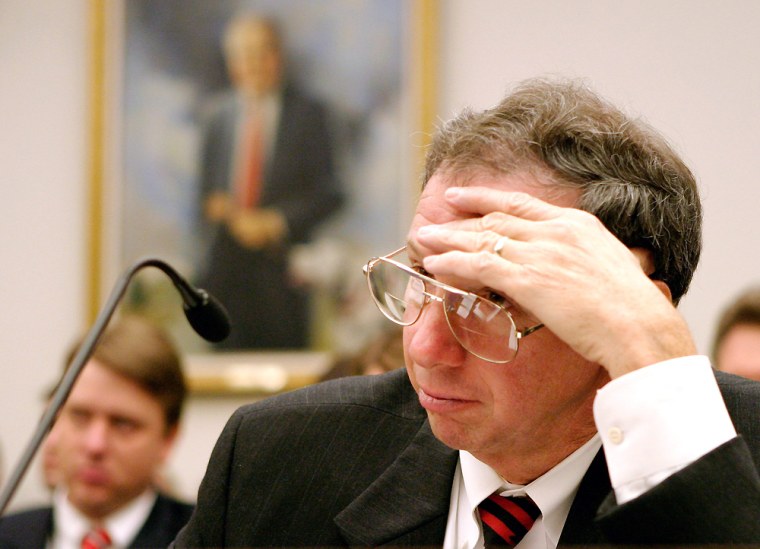U.S. astronauts will blast back into space in a matter of weeks, the head of NASA said Tuesday, despite a new, critical report questioning the safety of this exploration.
The optimistic assessment from NASA administrator Michael Griffin came after a task force review said Monday that the agency failed to meet key safety recommendations the came about as a result of the Columbia tragedy.
"We look like we're in pretty good shape. ... Based on what I know now, we're ready to go," Griffin told the House Science Committee.
Top shuttle managers are conducting a flight readiness review this week in hopes of launching the shuttle Discovery as early as July 13, the first mission since Columbia broke apart during re-entry on Feb 1, 2003, killing all seven astronauts aboard.
A task force formed after the accident held its final meeting Monday night, and concluded that the space agency still does not fully comply with three of the toughest recommendations that accident investigators made in 2003.
The task force determined that NASA has put off long-term improvements to the shuttle's thermal shielding, thus failing to improve its ability to make emergency repairs in space. But the group also acknowledged that delaying a summer launch a few months would not significantly reduce the risks of such space flight.
Columbia crashed after a suitcase-sized chunk of insulating foam tore off its external fuel tank during liftoff and pierced the left wing, damage that proved fatal when the spaceship returned to Earth's atmosphere.
The shuttle program's planned return to space in May was scrubbed over concerns about possible ice buildup on a fuel tank.
Competing priorities
Griffin, the agency's 11th administrator, was greeted warmly by lawmakers who warned him that NASA faces tough decisions ahead on how to balance its long-term plans of retiring the space shuttles, conducting further work on the international space station, creating a new manned space mission vehicle and beginning the work on a mission to Mars.
Rep. Sherwood Boehlert, R-N.Y., said the agency was "pretty much flying blind right now."
"NASA can barely give a definitive answer to a single question about its programs. That is not, believe it or not, a criticism," said Boehlert.
Aside from the scientific and budgetary challenges facing NASA, the lawmakers also wrestled with a looming geopolitical roadblock to U.S.-Russia cooperation on the International Space Station.
The Iran Non-Proliferation Act would effectively bar U.S. astronauts from staying on the space station after April of next year. The bill, passed in 2000, had aimed to prevent Russia from helping Iran expand its nascent nuclear program.
The measure has clearly failed, said Rep. Dana Rohrabacher, who blamed both the previous and current administrations for not making effective overtures to the Iranians.
"It was a worthy effort at the time," Rohrabacher, R-Calif, said of the law. "The strategy has, however, not worked."
Both NASA and the State Department now support an amendment that would allow the U.S. to maintain its involvement with the space station. If such an amendment is not passed by Congress, the only U.S. involvement with the space station would be when a U.S. vessel is actually docked there.
